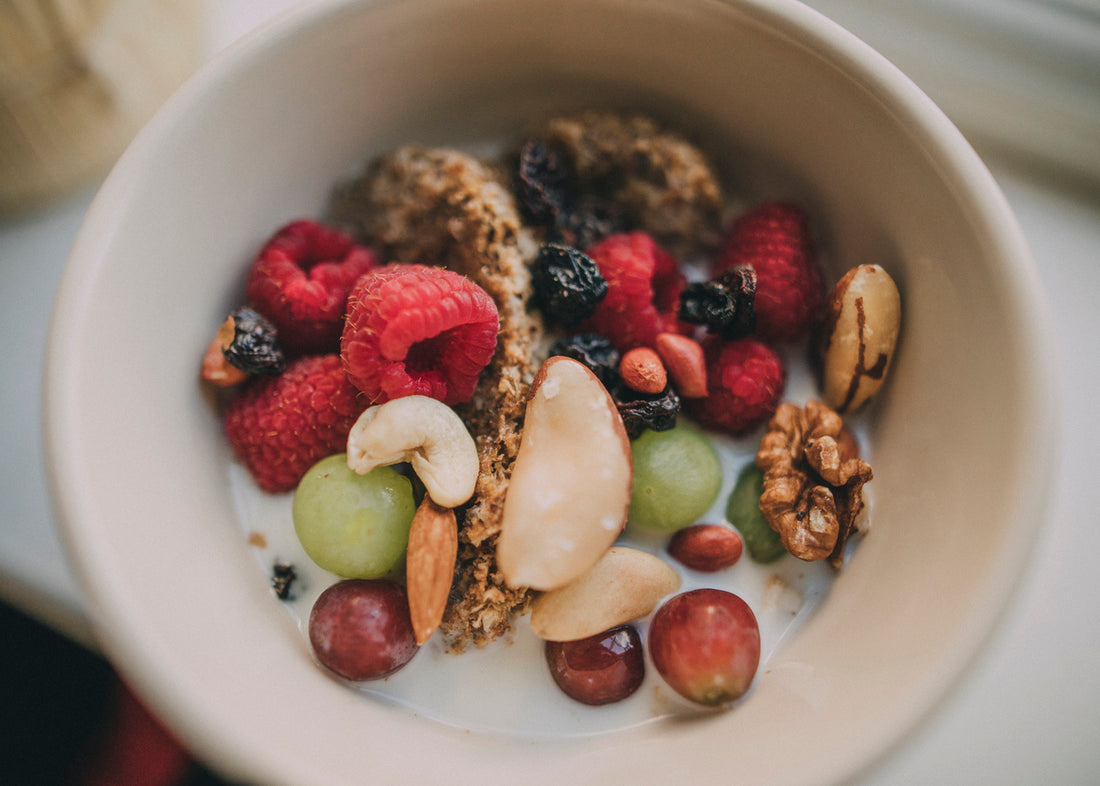
Benefits of Fiber in a Fitness Program
Share
“I’ve just started a new fitness program. Should I take a protein shake? A meal replacement? Are carbohydrate powders beneficial?” These are inevitable questions that have been asked by many people looking for nutrition coaching or advice.
Of course, you probably know that protein is the building block of lean muscle. Nearly every website or trainer will tell you that you need to ensure you’re eating enough protein, in order to adequately support your fitness goals. However, protein does not directly aid in weight loss, and protein may require additional supplements to gain its full benefits. While protein is important, it alone doesn't paint the whole picture of a proper nutrition plan. It's becoming quite common for fitness enthusiasts to overlook the importance of fiber, and unfortunately, more and more people are becoming fiber deficient.
Protein consumption for Americans is reaching an all-time high. This may be due to the increased popularity of low carbohydrate diets. It’s estimated that 97% of Americans get at least the recommended amount of protein, but under 3% are getting enough fiber. (1) One factor that may be contributing to this imbalance is the fact that protein rich foods are a common part of the American diet. Foods such as eggs, chicken, beef, beans or milk are commonly seen in the typical kitchen. Foods containing high amounts of fiber, on the other hand, are less common. The bottom line? You’re probably getting more than enough protein and not getting enough fiber.
Like what you're reading so far? Follow us on Facebook and join our community!
Fiber Types
There are two types of fiber, and they are both correlated with how they interact in water. Soluble fiber dissolves in water, while insoluble fiber does not. The reactions to these two types of fiber in your body are completely opposite. When soluble fiber enters our body, it slows down our digestion. You don’t just feel fuller longer, you actually are fuller longer. Insoluble fiber, on the other hand, does not dissolve in water. It remains intact in our digestive system and speeds up the digestive process.
Fiber Benefits
Fiber is generally associated with promoting regular bowel movements, but to leave it there, you would be selling yourself short. Yes, fiber promotes regularity, but there is so much more. As fiber passes through your body, it can inhibit your body's ability to absorb fat and cholesterol. As soluble fiber makes its way through your digestive system, it latches on to bile acids that your gallbladder makes to breakdown fat. When you excrete the fiber attached to the bile acids, you are lowering your body’s content of bile acid. The lower the bile acid, the lower amount of fat you absorb. (2) While you want to maximize your absorption of valuable vitamins and nutrients, an excess of fat storage is not ideal.
Fiber benefits are not limited to bile acid extraction exclusively. It actually works like a natural detox. Soluble fiber can “soak up potentially harmful compounds, excess estrogen and unhealthy fats, before they can be absorbed by the body,” while insoluble fiber “promotes toxins to move along more quickly out of the body” therefore “limiting the amount of time chemicals like BPA, mercury and pesticides stay in your system.” (3)
Whether soluble or insoluble, fiber is soaking up things that our body doesn’t want or need. The removal of anything from hormones to pesticides (consumed knowingly or unknowingly) can be assisted by adding fiber to your diet. This can contribute to losing unnecessary weight and boosting overall wellness.
Adding more
One way to add more fiber to your diet is by taking a fiber drink. Many of these are gritty, and do not taste very good. Purify Fiber Drink combines four sources of fiber for ultimate mixability, and organic juice extracts giving it an exceptional taste.
Lentils, beans, artichokes, avocados and whole wheat pasta are also great sources of fiber. Adding a blend of flax and chia seed to morning yogurt can boost your fiber intake.

